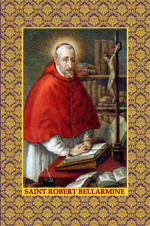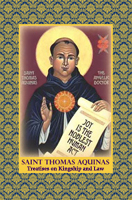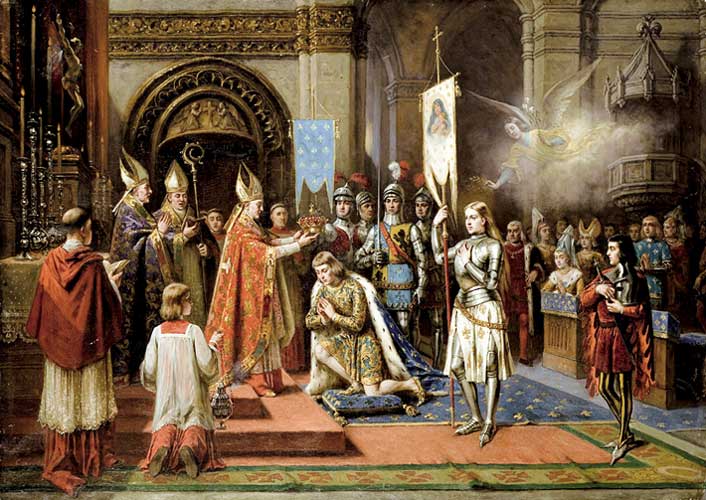A Nation Built on God? Christian Pilgrims versus Masonic Founders
Intelligence Report
American Foundations #1
CONSTITUTION DAY, SEPTEMBER 17, 1787 was an auspicious day on which the people of the United States celebrated the ratification of their constitution and inauguration of their new government. Strangely, the laws by which the new Christian nation would govern itself were not drawn from Christian inspiration, nor was the church involved, to any significant degree, in the debates leading to ratification of the United States Constitution.
“Where a hundred years before (before ratification of the constitution) every case, whether civil, political or criminal, was decided by a reference to the Old or New Testament … in “The Federalist” the Bible and Christianity, as well as the clergy, are passed over as having no bearing upon the political issues being discussed.”[1]
The American idea that constitutional law, rather than divine law is the supreme law of the land, and that other ideas such as the separation of church and state (condemned as a “pernicious error” by Saint Pope Pius X, Vehementer Nos); popular sovereignty (versus sovereignty of God)[2]; the subordination of the church in educational affairs (versus the primacy of the spiritual over the temporal); and the constitutional approval of worship of false gods (approved by the first amendment) were not drawn from the bible. They were all drawn from the revered writings of Ancient pagan philosophers and European philosophers of the Enlightenment.
The United States Constitution is not a compilation of Christian principles of law and governance; neither Jesus Christ nor the idea of a “Christian nation”, are mentioned anywhere in the Constitution. According to the first amendment, the national government cannot advance Christian ideas (such as the existence and primacy of the Holy Trinity, the divine commandments to have no other gods and to keep the Sabbath holy and the command to honor your parents); yet Jesus said, “If you love me, keep my commandments. (John 14:15)”.
Neither the name of Jesus nor the idea of Holy Trinity can be found anywhere in the nation’s supreme governing document, even the amorphous, syncretic, and eclectic idea of “Nature’s God[3]” proclaimed in the Declaration of Independence is absent. God is absent, and more importantly, Christ is absent. Most importantly and contrary to Christian doctrine and sacred scripture, which teach that all law and authority come from God (Ephesians 1:21-22; Matthew 28:18; John 19:11), the Preamble to the US Constitution informs us that power and authority are derived from the will of the people, as if truth in moral and political matters could be determined by majority consensus. By the time we advance to Article Six, we are informed that the Constitution is the supreme law of the land. Clearly, Jesus is no longer honored as the lawgiver as He had been in the eyes of the original colonial founders, whose ideas, sentiments, and political ideas are proclaimed in the original legal charters that bear His name.
Subsequent to the ratification of the new federal constitution, one by one, fledgling state governments, following the lead of the Washington crowd, removed the name of Jesus Christ (found in 9 of the 13 original colonial charters) from their newly fashioned state constitutions. And then, over the course of the next century, they would further remove state constitutional requirements that an office holder be a “Christian” from their respective constitutions in acquiescence to the United States Constitution’s mandate against “religious tests” for office:
“Senators and Representatives…and the Members of the several State Legislatures, and all executive and judicial Officers, both of the United States and of the several States, shall be bound by Oath or Affirmation, to support this Constitution; but no religious Test shall ever be required as a Qualification to any Office or public Trust under the United States” (Article VI).
Therefore, the religious test provision of this article and any other anti-Christian provisions contained in, or purported to be implicit in any other article (for example, the highly questionable and ambiguous right to privacy purportedly implicit in the ninth, third, first and fourth amendments[4]) , would be slowly “incorporated” into the state constitutions, as decided by the United States Supreme Court, over the course of years by recourse to the 14th amendment (Due Process, Equal Protection, and Privileges and Immunities Clauses) and to the “Supremacy Clause”, Article VI:
“This Constitution, and the Laws of the United States which shall be made in Pursuance thereof; and all Treaties made, or which shall be made, under the Authority of the United States, shall be the supreme Law of the Land; and the Judges in every State shall be bound thereby, any Thing in the Constitution or Laws of any State to the Contrary notwithstanding.”
By the dawn of the 18th century (before the United States Constitution ever existed), 8 of the 13 original colonies had instituted some form of monetary-state-support for Christian religion in their Founding Charters (Massachusetts, Connecticut, New Hampshire, New York, Virginia, Maryland, South Carolina, and North Carolina). The other five (Pennsylvania, Georgia, New Jersey, Delaware, Rhode Island) did not offer monetary-support, but were Christian by Charter.
Some of the more notable Charters were:
The Connecticut Charter (1662), which clearly favored the Christian faith: Residents were required to have “the knowledge and obedience of the onely true God and Saviour of mankind, and the Christian faith.”
The Charter of Delaware (1701), which required belief in Jesus Christ to serve in public office: “All Persons who also profess to believe in Jesus Christ, the Saviour of the World, shall be capable…to serve this Government in any Capacity, both legislatively and executively.”
Likewise, King Charles II in issuing the Charter of Rhode Island (1663) recognized the Christian intentions of its founders: “They, pursueing, with peaceable and loyall minces, their sober, serious and religious intentions, of …edifieing themselves, and one another, in the holie Christian faith and worship.“
The Charter of Massachusetts Bay (1629) clearly explains the intention to establish a Christian “Plantation”: Whereby our said People…may be soe religiously, peaceablie, and civilly governed, as their good Life and orderlie Conversation, maie wynn and incite the Natives of Country, to the Knowledg and Obedience of the onlie true God and Savior of Mankinde, and the Christian Fayth, which in our Royall Intention… is the principall Ende of this Plantation.
At the dawn of the Revolution and in the aftermath of the 18th century, the following State Constitutions contained a specifically Christian religious requirement for citizenship or to hold office:
Constitution of Delaware (1776) Oath of Office:
“I _______, do profess faith in God the Father, and in Jesus Christ His only Son, and in the Holy Ghost, One God, blessed for evermore.”
Constitution of North Carolina (1776):
“No person, who shall deny the being of God or the truth of the Protestant religion, or the divine authority of the Old or New Testaments …., shall be capable of holding any office or place of trust or profit in the civil department within this State.”
Constitution of Maryland (1776) Article XXXIII:
“As it is the duty of every man to worship God in such manner as he thinks most acceptable to him; all persons, professing the Christian religion, are equally entitled to protection in their religious liberty…”
Constitution of New Jersey (1776):
“All persons, professing a belief in the faith of any Protestant sect, who shall demean themselves peaceably under the government, as hereby established, shall be capable of being elected into any office of profit or trust….”
Constitution of Pennsylvania (1776) Oath for Representatives:
“I do believe in one God, the Creator and Governor of the Universe, the rewarder of the good and punisher of the wicked. And I do acknowledge the Scriptures of the Old and New Testament to be given by Divine inspiration.”
Constitution of Georgia (1777) Article VI:
“Representatives shall be chosen out of the residents in each county, who shall have resided at least twelve months in this State….and they shall be of the Protestent religion.”
Constitution of Vermont (1777) Frame of Government, Section 9:
“And each member [of the legislature],…shall make and subscribe the following declaration, viz.:
‘I do believe in one god, the Creator and Governor of the universe, the rewarder of the good and punisher of the wicked. And I do acknowledge the scriptures of the old and new testament to be given by divine inspiration, and own and profess the Protestant religion.'”
Constitution of South Carolina (1778) Article XXXVIII:
“God is publicly to be worshipped. That the Christian religion is the true religion. That the holy scriptures of the Old and New Testaments are of divine inspiration, and are the rule of faith and practice”.
Constitution of Massachusetts (1780) Chapter VI “Article I”:
Any person chosen governor, lieutenant-governor, councillor, senator, or representative, shall, before he proceed to execute the duties of his place or office, make and subscribe the following declaration:
“I, A.B., do declare that I believe the Christian religion, and have a firm persuasion of its truth.”
“The people of this commonwealth have a right to invest their legislature with power to authorize and require, and the legislature shall, from time to time, authorize and require, the several towns, parishes, precincts, and other bodies politic, or religious societies, to make suitable provision, at their own expense, for the institution of the public worship of God, and for the support and maintenance of public Protestant teachers of piety, religion and morality, in all cases where such provision shall not be made voluntarily. (Article III)
Constitution of New Hampshire (1792) Section XIV required all legislators to be Protestant (Christian).
“Every member of the house of representatives shall be chosen by ballot, and for two years at least next preceding his election shall have been an inhabitant of this State, shall have an estate within the district which he may be chosen to represent, of the value of one hundred pounds, one-half of which to be a freehold, whereof he is seized in his own right; shall be at the time of his election an inhabitant of the town, parish, or place he may be chosen to represent; shall be of the Protestant religion, and shall cease to represent such town, parish, or place immediately on his ceasing to be qualified as aforesaid.
Section XXIX made the same religious rule applicable to all senators and Section XLII required the governor to be Christian.
Article VI guaranteed all Christians equal protection of the law:
“Every denomination of Christians demeaning themselves quietly, and as good subjects of the state, shall be equally under the protection of the law: and no subordination of any one sect or denomination to another, shall ever be established by law.
After the Founding Fathers crafted the supreme governing document, the United States Constitution, things began to change rather quickly. George Mason, a member of the Virginia delegation that met in Philadelphia for the Constitutional Convention, smelled a rat; he was one of three delegates who refused to sign the finished document. Instead, he became an anti-federalist and fought ratification of the Constitution. According to Mason, the plan was
“…totally subversive of every principle which has hitherto governed us. This power is calculated to annihilate totally the state governments.”
It appears that Mason’s fears were realized. In the aftermath of the United States Constitution, the specifically Christian characteristics of these colonial charters and state constitutions were either removed or slowly amended to reflect the more eclectic and amorphous “god”, which of course can be any “god” pagan, Christian, Hindu, Islamic etc. By 1818 Connecticut, along with all the other Christian states, was holding on by a string. Its governing elite had managed to remove religious tests for office and were in the process of completely ending state support for Christian churches. This complex maneuver was accomplished by adroitly recognizing all denominations and permitting each to levy a tax to support its own projects (by such apparent support, the state was reducing the sting):
“And each and every society or denomination of christians (sic) in this state, shall have and enjoy the same and equal powers, rights and privileges; and shall have power and authority to support and maintain the ministers or teachers of their respective denominations, and to build and repair houses for public worship, by a tax on the members of any such society only, to be laid by a major vote of the legal voters assembled at any society meeting, warned and held according to law, or in any other manner.”[5]
By ignoring Jesus Christ and secularizing religion, the Framers treated Christ with an arrogant air of indifference as if He had never founded a kingdom or as if the one He had founded had somehow become irrelevant. In the process, they opened the doors to future full scale apostasy. If they had established a Christian government, as many ultra-nationalist Christians proclaim, they should have founded it on Him as the cornerstone and provided the nation with a Christian document and with Christian laws rooted in the revealed divine law, specifically the Decalogue and the Gospels as the basis for constitutional and statutory law.
Pope Pius XI recognized this social and political verity in his encyclical, Quas Primas (1925) He quotes the Prophet Daniel:
“The kingdom that the God of heaven shall found, ‘shall never be destroyed, and shall stand forever.’”
Then after the resurrection,
“…when giving to his Apostles the mission of teaching and baptizing all nations he took the opportunity to call himself king, conforming the title publicly, and solemnly proclaiming that all power was given to him in heaven and on earth.”
Pope Pius reminds us moreover that,
“It is a dogma of faith that Jesus Christ was given to man, not only as our Redeemer, but also as a law-giver, to whom obedience is due.”
“Manifold evils in the world were due to the fact that the majority of men had thrust Jesus Christ and his holy law out of their lives; that these had no place either in private affairs or in politics…As long as individuals and states refused to submit to the rule of our Savior, there would be no really hopeful prospect of a lasting peace among nations.”
Unfortunately, by lobbying for the acceptance of the first amendment, which permits the free exercise of almost any religion and prohibits state support of, or public avowal of the Christian faith as the foundation of its institutions and laws (as it had been for the states), the federal government rejected the ceremonial requirements of the Decalogue and in so doing violated the first three commandments[6] and in effect had “thrust Jesus and his holy law out of their lives.” A nation that violates even one of the commandments can hardly be called a Christian nation – yet before the ink was dry on the first amendment, we had already violated about a third of them.
The Sixth Article of the US Constitution contains the provision most at odds with the contention that the American Government is the result of Christian inspiration. According to this article, it is the Constitution rather than the law of God, which is to be accepted, ratified, and affirmed as the “supreme law” of the land. If America were a Christian nation it would not permit laws contrary to the law of God and would have instituted a government under the kingship of Christ (as Church and State leaders of Poland recently did). But, the Framers, contrary to the colonial founders, had an aversion to kings and a reluctance to build a new nation on Christian principles. According to McGuffey’s 1800 reader (used in almost every colonial school in America), wherever they settled, America’s original founders established governments that were:
“Theocratical insomuch that it would be difficult to say where there was any civil authority among them distinct from ecclesiastical jurisdiction. Whenever a few of them settled a town, they immediately gathered themselves into a church; and their elders were magistrates, and their code of laws was the Pentateuch…. God was their King; and they regarded him as truly and literally.”
They wanted to build the kingdom of God based upon the laws of God. John Cotton, the first minister of Boston insisted that
“…the government might be considered as a theocracy, wherein the Lord was judge, lawgiver and king; that the laws which He gave Israel might be adopted….”[7]
Consequently, Cotton was asked to frame a set of laws using the laws of Moses as his model.
But according to the new constitution,
“No title of nobility shall be granted by the United States: and no person holding any office of profit or trust under them, shall, without the consent of the Congress, accept of any present, emolument, office, or title, of any kind whatever, from any king, prince, or foreign state” (Article 1, Section 9).
Thus, from the very beginning, the Kingship of Christ is ruled out, because according to thinkers such as Thomas Jefferson, “The Christian God is a being of terrific character — cruel, vindictive, capricious, and unjust” (Jefferson to William Short, August 4, 1820, in L&B, 15:260. Transcription available at Founders Online.) And again, “The day will come when the mystical generation of Jesus, by the Supreme Being as his father in the womb of a virgin, will be classed with the fable of the generation of Minerva in the brain of Jupiter” (https://www.monticello.org/site/research-and-collections/jeffersons-religious-beliefs).
Jefferson’s writing buddy, John Adams, in a letter to Jefferson regarding the Holy Trinity stated,
“Tom, had you and I been 40 days with Moses and beheld the great God, and even if God himself had tried to tell us that three was one…and one equals three, you and I would never have believed it. We would never fall victim to such lies.”
And Thomas Paine:
“I do not believe in the creed professed by the Jewish church, by the Roman church, by the Greek church, by the Turkish church, by the Protestant church, nor by any church that I know of. My own mind is my own church” (Age of Reason).
According to James Madison, the Father of the Constitution”:
“The civil government functions with great success…by the total separation of the Church form the State.”[8]
Pope Pius XI did not think so:
“If…the rulers of nations wish to preserve their authority, to promote and increase the prosperity of their countries, they will not neglect the public duty of reverence and obedience to the rule of Christ…With Jesus Christ…excluded from political life, with authority derived not from God but from man, the very basis of that authority has been taken away….The result is that human society is tottering to its fall, because it is no longer secure on a solid foundation.”
Clearly, the US Constitution is a “man-made” law crafted by men who such as Thomas Jefferson, Benjamin Franklin, John Adams, etc. free thinkers who had replaced Jesus Christ and the Holy Trinity with a “strange god” of the Enlightenment manifest in such diverse beliefs as Socinianism, Unitarianism, Deism and Gnosticism all of which are antithetical to the Holy Trinity and to the Divinity of Jesus as the only begotten Son of God consubstantial with the Father or by men who had maintained a belief in Christ but relegated Him to the private sphere where His impact on law would be minimized. The “God” in whom the majority of these men trusted, is not Jesus Christ or, if it is, He is not considered the giver of revealed divine laws that are above every law, even constitutional law. Consequently, Jesus is left out of the document; they did not think enough of divine law to find a way to work it into the Constitution because they were concerned about offending non-Christians who made up less than one percent of the population, but not concerned enough about offending the Holy Trinity.
“Christ, who has been cast out of public life, despised, neglected and ignored, will most severely avenge these insults; for his kingly dignity demands that the State should take account of the commandments of God and of Christian principles, both in the making of laws and in the administration of justice, and also in providing for the young a sound and moral education” (Pope Pius XI, Quas Primas).
The secularization of America began with the secularizing of its federal government, and the rejection of divine law as the basis for all subsequent statutory laws and ordinances. As the influence of the federal government increased, so too did its inherent secular ideas, that is, ideas often times antithetical to divine and natural law, laws which, with the ratification of the Constitution, increasingly became things of America’s Christian past
__________________________
ENDNOTES
* PAINTING: “The Embarkation of the Pilgrims” (Robert Walter Weir)
[1] Thomas Cumming Hall, The Religious Background of American Culture (Boston, MA: Little, Brown, and Co, 1930) pp. 184-85, quoted in Gary DeMar, America’s Christian History: The Untold Story (Powder Springs, GA: American Vision, Inc., 1993/2008) pp. 83-84: http://www.missiontoisrael.org/biblelaw-constitutionalism-pt3.php#endnote35
[2] There is no power but from God and those that are, are ordained of God. Therefore he who resisteth the power resisteth the ordinance of God” (Romans 13).
[3] God? What God. Is this the Trinity, Allah, a Gnostic deity, the Hindu Trimurti, Jehovah? The term is too amorphous to connote any specific deity, yet it stands for them all or any one you want to believe it stands for.
[4] Fourth Amendment: “The right of the people to be secure in their persons, houses, papers, and effects, against unreasonable searches and seizures, shall not be violated, and no Warrants shall issue, but upon probable cause, supported by Oath or affirmation, and particularly describing the place to be searched, and the persons or things to be seized.”
In his dissenting opinion Justice Brandeis (Olmstead v US, 1928) stated that: “The makers of our Constitution understood the need to secure conditions favorable to the pursuit of happiness, and the protections guaranteed by this are much broader in scope, and include the right to life and an inviolate personality — the right to be left alone — the most comprehensive of rights and the right most valued by civilized men. The principle underlying the Fourth and Fifth Amendments is protection against invasions of the sanctities of a man’s home and privacies of life. This is recognition of the significance of man’s spiritual nature, his feelings, and his intellect.”
Unfortunately, in the case of abortion, the place to be searched is a woman’s body and the person to be seized and killed is a defenseless baby who has taken up temporary residence therein. Of course, if a woman consents, no warrant to search and kill is necessary.
The Supreme Court (1920), found a right to privacy implicit in the 14th amendment to prohibit states from interfering with the parental right to privacy regarding the education of their children (Meyer v Nebraska).
Then, in 1969 the court used the right to privacy to defend possession and viewing of pornography in the privacy of one’s home (Stanley v Georgia) More recently, in 1972 (Roe v Wade) the court extended the right to include defense of parental choice to kill their children.
The womb is the home of a child who is a human person protected from violation of her right to privacy and her inviolate right to life. If anyone should be secure in life and limb and whose house should be protected by a right to privacy, it is an infant. Unfortunately, the Supreme Court ruled in Roe v Wade, that a developing human baby is not a “person” and therefore not blessed with a constitutional right to privacy, because the 14th amendment (through which the Bill of Rights is applied to the states), applies only to “persons”.
[5] https://www.cga.ct.gov/asp/Content/constitutions/1818Constitution.htm
[6] The third commandment corresponds to the 4th commandment in most Protestant listings.
[7] http://www.missiontoisrael.org/biblelaw-constitutionalism-pt3.php
[8] From “A Memorial and Remonstrance,” addressed to the General Assembly of the Commonwealth of Virginia, 1785.





